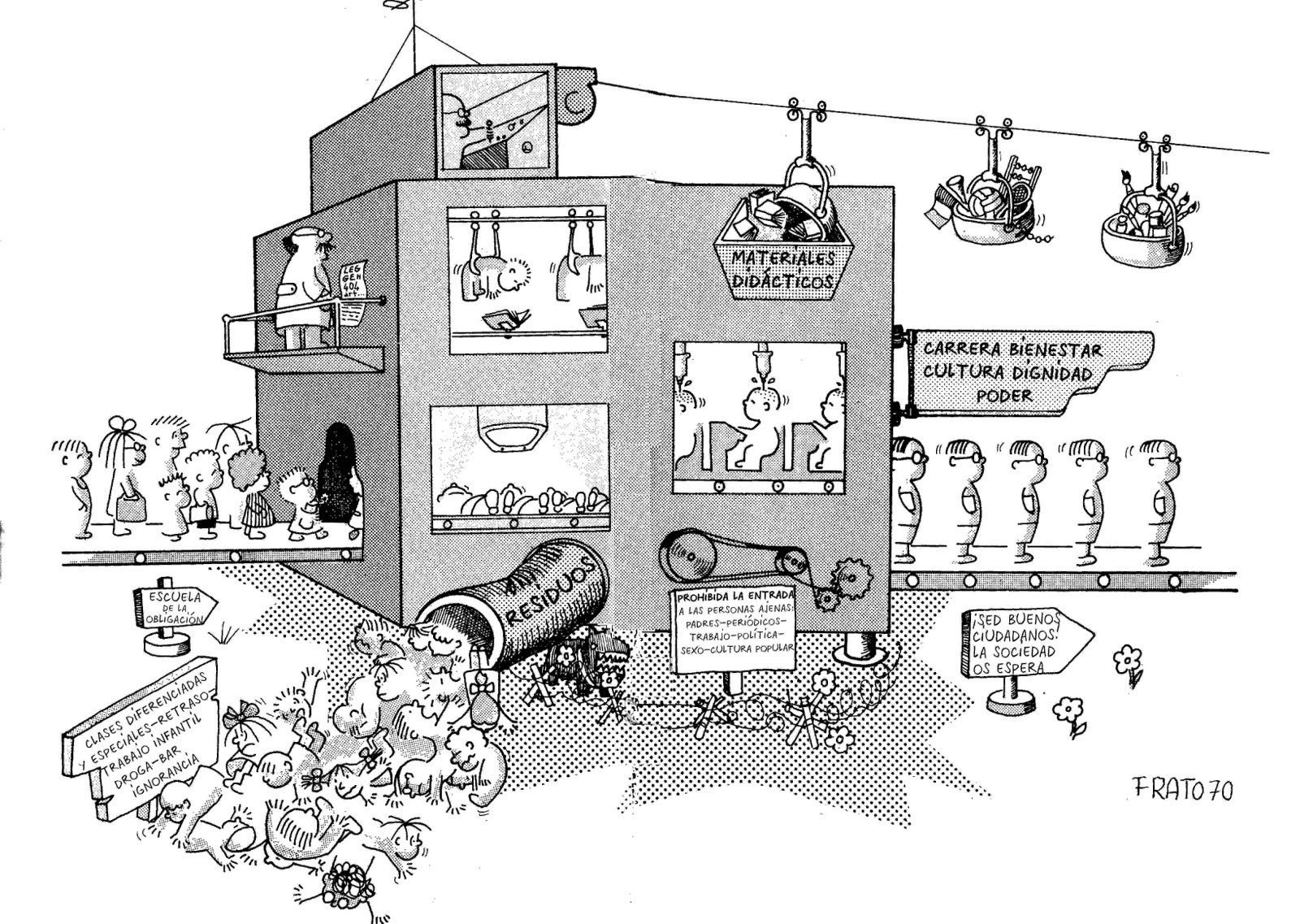Factory vs Garden
My first day of college changed my life forever. It was a morning of September in Almeria (Spain) in the only University campus by the sea in Europe. I was new in town, feeling the sorrow and excitement a freshman feels the first time he realizes he is on his own. I took a dramatically full bus that bordered the beach for 20 min. I could barely breath, with the corner of my eye I could see people on the beach playing volleyball, soccer, laying on the sand … The bus continued boarding passengers until our last stop. That day I discovered something, the biggest secret in the bus advertisement industry: bus ads are actually real people who unfortunately couldn’t get off at their stops and got smashed in to the windows.
When I arrived to my classroom I asked myself what on earth I was doing there. Suddenly, I saw an image projected on the smart board. It was “La máquina de la escuela” by Tonucci, a satire that compares the school with a factory.
La máquina de la escuela, Francesco Tonucci 1970
Many details of that picture called my attention: the date (1970), how kids are all different and unique at first, how they all come out the same and the way the `different´ ones get discarded trough a tube. In that moment, I understood two things; one, that I needed to buy a bike (I never wanted to get on that bus again) and two, that traditional education has been obsolete for a long time. This last realization gave me a purpose: to contribute to a better education system.
Unfortunately, the traditional education system tends to focus on having the highest score on standardized tests and overload teachers with paperwork. This makes it very hard to pay attention to what really matters, the students and faculty's well being. In addition, these tests stigmatize students with tags of `good` or ´bad´ based solely on their scores.
Now let's forget the factory and imagine schools as gardens. We need to find the right conditions for our plants to grow. If we don’t water them or we water them too much, they don’t grow well, the same happens when we under or over-stimulate our kids. Plants don’t grow by pulling on them too hard they can loose their shape or even their roots; in the same way, if we force kids to learn something they aren’t developmentally ready to learn yet, it could bring inconvenient consequences. As parents and educators we tend to compare our kids with others and be proud when our children do something they aren’t supposed to do so early (like reading). We should think about human development more like growing organic plants and less like manufacturing products. If you have ever eaten a mango that maturated in the mango tree, you know what I am talking about (it is so much better than the ones that were taken green and maturated in container of a ship).
Neuroscience should be key in our education systems. It give us the guidance of the what, the when and the how should our schools be. We are not just brains walking around, we all have a body to develop and a heart to feed; with this, I am not saying academics are not important but our schools should focus on human development and the needs we all have.
When choosing the right school for my kids, I ask myself 3 questions: How will this school help my children grow personally? How will this school helps them socially? How will this school would help them contribute to Society? None of these aspects are related to scores, tests, paperwork or the amount of hours they spend on Math homework. They are related to educating the entire person and celebrating diversity. I hope you find your garden.

